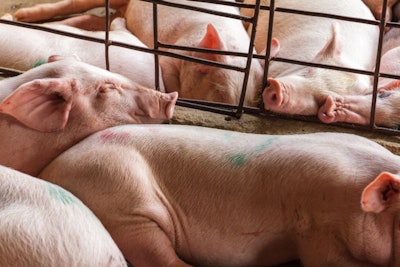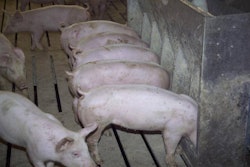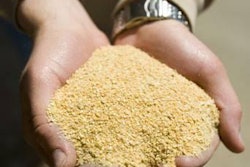
Collaborative project aims to support the prevention and control of African swine fever
A group of scientists from the U.S. and Canada will work with Vietnamese government, diagnostic laboratories, veterinarians and pig producers to support the prevention and control of African swine fever (ASF) in the country.
The project is funded by a grant from the U.S. Department of Agriculture (USDA) Foreign Agriculture Service (FAS) and includes researchers from the University of Minnesota Center for Animal Health and Food Safety, the U.S. National Pork Producers Council, Epi Insight Ltd., Iowa State University and the Canadian Food Inspection Authority. Ames, Iowa-based Swine Health Information Center (SHIC) is leading the project.
“This is a pretty broad, collaborative project,” said Paul Sundberg, executive director of the SHIC.
Two-part program
The “capacity-building program” includes two parts. The first will train veterinarians, laboratory workers and farm advisers or managers on ways to prevent and control the spread of ASF. Training will include in-person workshops and online courses that focus on epidemiology, diagnosis and surveillance; biosecurity; and ASF preparedness, response and animal disease regulation.
The second part of the project will include on-farm investigations to learn more about how the virus behaves in a farm environment, how to isolate the virus, ways to clean and disinfect to kill the virus and to find out how quickly an infected site can be repopulated.
“There are probably other things that we will also include, such as the role of rats and mice, maybe, in transmitting the virus, how to (heat trailers up) to disinfect them.” Sundberg said. “Those kinds of additional questions will probably come out as well and, if we have a sufficient budget for that, we will also be working on those kinds of additional ancillary questions.”
The project is still in the planning stages, but four to six field projects are anticipated to be completed over a six- to nine-month period.
Finding the right farms
Sundberg traveled to Vietnam in September to set up the project and identify farms on which the research will be conducted.
“We want to learn those lessons on farms in Vietnam that, as closely as possible, mirror the types of farms that are in the U.S.,” he said. “We won’t restrict the project to any one area. We want to identify farms that look like those in the U.S. and then carry out the on-farm projects in those as they are either at high risk or as they break with ASF and we can see how the virus acts on the farm.”
By having this kind of insight, researchers hope to be better prepared if, or when, ASF is detected in pigs in North America.
“The focus here is going to be to learn lessons about ASF that we have to learn on the farm in preparation for it getting here … in North America,” Sundberg said. “What the on-farm effort of this project will do is trying to help us to learn those lessons about ASF before the virus gets here so, if it gets here, then we already have the answers in how to respond.”
Why Vietnam?
To date, ASF outbreaks have been officially reported to the World Organisation for Animal Health (OIE) by 11 Asian countries. Up to November 7, there have been 6,647 ASF outbreaks in Asia since 2018, according to the OIE. Direct losses of pigs — those that died or have been destroyed at infected premises — exceed 4.04 million, with almost 3.8 million of these in Vietnam.
With so many affected countries, why did researchers choose to do their work in Vietnam?
“Vietnam is a trade partner and a trade market,” Sundberg said. “Vietnam is willing to cooperate, they’re rather open, and they’re rather excited about cooperating. We anticipate the help from the government, the help from the veterinary diagnostic labs, the vets and the producers will come through and will be objective and transparent. There are some things in other countries … that we could have gotten into, but they’re probably not as transparent as Vietnam is.”
View our continuing coverage of the African swine fever outbreak.


















